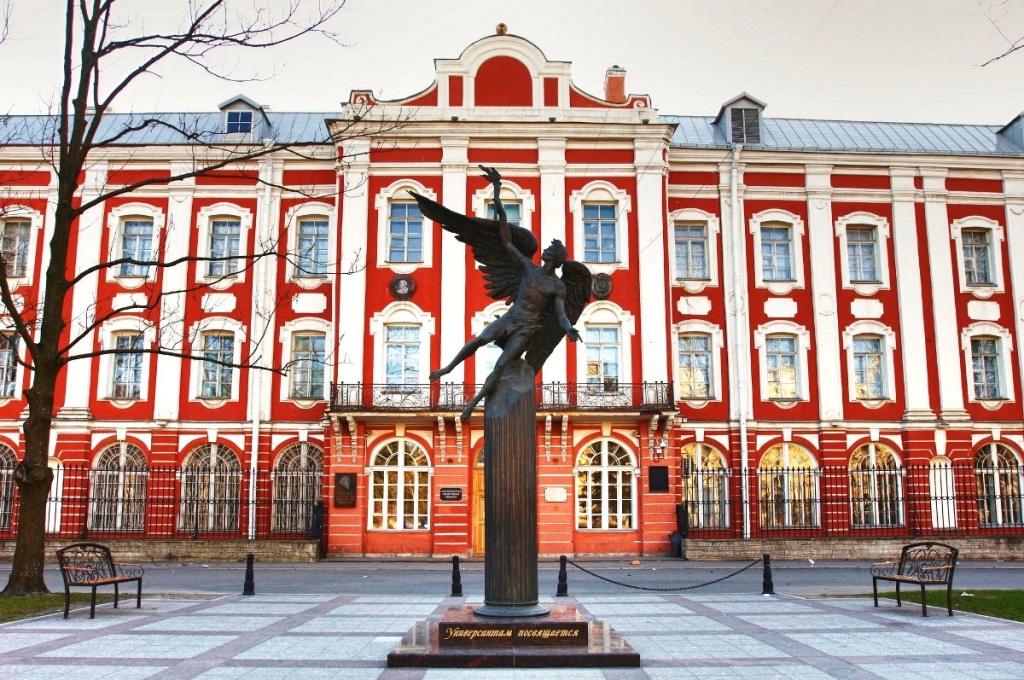One of the most crucial factors for families to think about before relocating abroad is the educational system. The Russian city of Petersburg is a thriving and culturally diverse place where foreign families can find a range of educational opportunities that suit their needs. This handbook will give a general overview of Petersburg’s educational landscape, emphasizing the various school alternatives, admission procedures, curricula, and extracurricular activities.

Types of schools in Petersburg
Petersburg offers a range of schools to cater to the diverse needs of expatriate families. These include international schools and local Russian schools. International institutes in Petersburg provide an excellent option for expat families seeking an education that follows a familiar curriculum and offers a multicultural environment. Two renowned international schools in Petersburg are the British International School and the American International School. For expat families looking for a more immersive experience and wanting their children to learn the Russian language and culture, local Russian institutes are an option worth considering.
Admission process
Navigating the admission process can be a crucial aspect of ensuring a smooth transition for expat families in Petersburg.
- International schools
Admission procedures for international schools may vary, but generally, they involve several steps to assess the suitability of the student for the school’s curriculum.
Application requirements
Parents applying to international institutes usually need to send in an application form and any supporting documentation, including academic records, letters of recommendation, and a copy of the child’s passport. Additionally, some colleges could ask for an interview or personal statement.
Entrance exams
To gauge the academic readiness of the student, international institutes may conduct entrance exams in subjects like mathematics, English, and science. These exams help determine the appropriate grade level for the student.
Language proficiency
International institutes may have standards for language fluency because their student body is generally diverse. Tests of English language competency, such as the TOEFL or IELTS, could be necessary for non-native English speakers.
- Local Russian schools
Enrolling in local Russian schools involves a different process compared to international schools.
Enrollment process
Parents must visit the school’s administration office and present the required documentation for their child to enroll in a local Russian school. These data typically consist of the child’s passport, birth certificate, and health information. Additionally, vaccination records and evidence of residency may be required by the school.
Documentation needed
It’s crucial to remember that paperwork submitted to the neighborhood Russian schools must be translated into Russian and notarized. To guarantee that the paperwork is processed smoothly, parents might want the help of a local agent or a translator.
Assistance for non-natives
Schools offer assistance to foreign-born children who may not speak Russian or English well to help them get beyond language hurdles and seamlessly transition into the educational system.
Language support programs
International institutes often offer language support programs for non-native speakers. These programs focus on improving language proficiency and providing additional help in subjects where language skills are essential.
Russian language learning
For foreign-born students enrolled in nearby institutes, studying Russian is an essential component of their education. To assist non-native speakers in assimilating into the language and culture, these institutions frequently offer support programs or Russian language instruction.
Curriculum options
The curricula offered by international institutes in Petersburg are usually tailored to the nationalities they represent. The American and British curricula are well-liked options. The British curriculum is well known for its emphasis on inquiry-based learning, critical thinking, and academic rigor.
The humanities, languages, English language and literature, mathematics, and sciences make up the core topics of the British curriculum. The program is meant to give children a well-rounded education and get them ready for college.
The goal of the American curriculum is to give students a well-rounded education that promotes creativity, independent thought, and problem-solving. The basic disciplines taught in American schools include science, math, English, social studies, and physical education. Critical thinking abilities and experiential learning are prioritized in the curriculum. Furthermore, students can investigate elective courses in fields including technology, foreign languages, and fine arts.
Education costs and financial considerations
The cost of tuition for international institutes in Petersburg is typically higher than that of local Russian institutes. Depending on the school, grade level, and curriculum offered, tuition costs may change. It’s critical to take these fees into account while budgeting for educational expenses.
Families that are living abroad should additionally budget for additional costs such as extracurricular activity fees, textbooks, uniforms, school supplies, and transportation. These expenses may differ based on the school and the student’s selected activities.
You may also like these articles:
Russia: best universities in St. Petersburg
